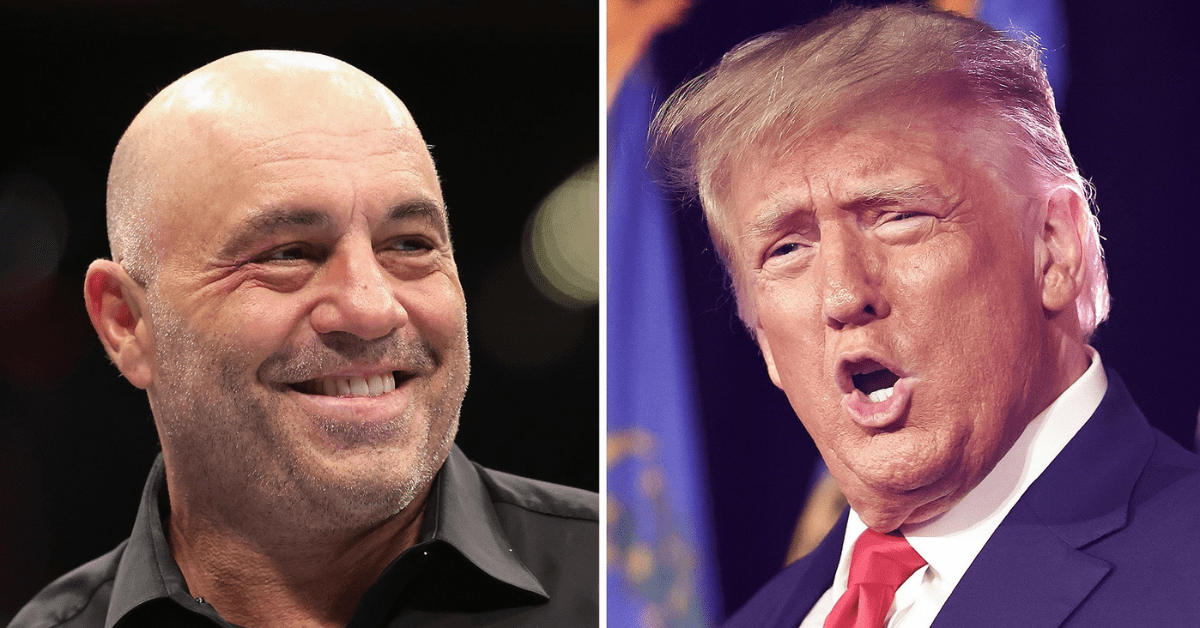In a highly anticipated conversation, former President Donald Trump recently sat down for a marathon three-hour interview with podcast powerhouse Joe Rogan. The talk covered everything from the upcoming election to environmental concerns, UFOs, and some of Trump’s longstanding grievances with mainstream media and current political figures. Released late on Friday, the interview immediately sparked debate and trended widely across social media.
The recording stretched so long that Trump ended up arriving several hours late to a campaign rally in Traverse City, Michigan. As they waited, some attendees became frustrated and left before Trump finally made his appearance. Still, his willingness to join Rogan, known for his massive following and no-holds-barred style, signals a deliberate shift in Trump’s media strategy as he courts younger, independent-minded voters in the final weeks before Election Day.
Addressing Big Issues – And Bigger Controversies
Much of the conversation felt familiar, with Trump rehashing some of his campaign’s cornerstone talking points. He revisited the claim that the 2020 election was unfairly influenced, calling for more stringent election oversight, though he conceded in September that he narrowly lost to President Joe Biden. He attributed election changes during the pandemic, which made voting easier, to “improper legislative approval,” sparking debate on voting rights and election integrity.
The former president also covered his frustrations with Vice President Kamala Harris, whom he described as a political adversary. Criticizing her performance and policies, he suggested her leadership would be disastrous for the country, framing her as an even larger threat than foreign adversaries. These comments prompted prominent Republicans, such as House Speaker Mike Johnson and Senate Minority Leader Mitch McConnell, to issue a public request for civility in campaign rhetoric.
Rogan’s Influence and the Podcast’s Popularity
Joe Rogan’s podcast has long held an iconic place in American media, with over 17 million subscribers on YouTube and a sizable audience on Spotify. Originally a comedian and the host of Fear Factor, Rogan has become a central figure in media, known for his wide-ranging guest list and open-ended conversations. His listeners include people from all political backgrounds, making him an attractive stop for candidates hoping to reach undecided voters. Rogan previously extended an invitation to Kamala Harris for a similar interview, though her campaign cited scheduling conflicts as the reason she couldn’t appear.
Throughout the conversation, Rogan kept the tone curious yet cautious, even stepping in when Trump referred to Confederate General Robert E. Lee as a “genius.” Rogan gently prompted Trump to clarify that he only meant “strategically,” preempting any potential backlash. Rogan’s interview style allowed Trump to elaborate on his views, but it was clear the host wanted to avoid amplifying overly controversial remarks without context.
Trump’s Environmental and Extraterrestrial Concerns
In a lighthearted yet telling exchange, Trump also spoke about his enduring concerns with wind turbines, claiming that their use harms marine wildlife, specifically whales. He even joked that he could make a good “whale psychiatrist,” hinting that environmentalists should be more vocal about the impact of alternative energy sources on animals.
The former president also shared his views on extraterrestrial life, mentioning that he’d learned a lot about UFOs. Rogan quickly reminded Trump that evidence of life on planets like Mars has yet to be found. Trump, however, speculated that life forms might simply exist “in ways we don’t know,” adding a touch of mystery to the conversation.
The Changing Media Landscape and Trump’s Campaign Strategy
Trump’s decision to sit down with Rogan reflects a growing trend among candidates to turn to alternative media in reaching the public. Podcasts like The Joe Rogan Experience draw millions of listeners who don’t always follow mainstream news outlets, and Rogan’s show, in particular, resonates with a younger male audience—a demographic Trump’s campaign appears keen to capture.
This embrace of nontraditional media is likely part of a calculated shift as Trump eyes November. The strategy seems to be an attempt to sidestep traditional media filters and connect directly with voters through long-form conversations that go beyond campaign soundbites.
A Pivotal Campaign Moment?
For Trump, the Rogan interview appears to be both a bid to reshape his media image and a last push to energize voters across the political spectrum. By tapping into Rogan’s extensive reach, Trump hopes to break through the noise and connect with Americans on issues both serious and strange. With Election Day on the horizon, his team is likely betting that conversations like these will resonate with a public ready for something beyond the typical campaign playbook.
After wrapping up the three-hour session, Trump realized he was running late for his rally. With a wry smile, he turned to Rogan and said, “If I’m a little off tonight, I’m going to blame you.” As he headed off to Traverse City, the episode had already gone viral—proving once again that, in the age of podcasts, the road to the White House isn’t just paved by cable news.
